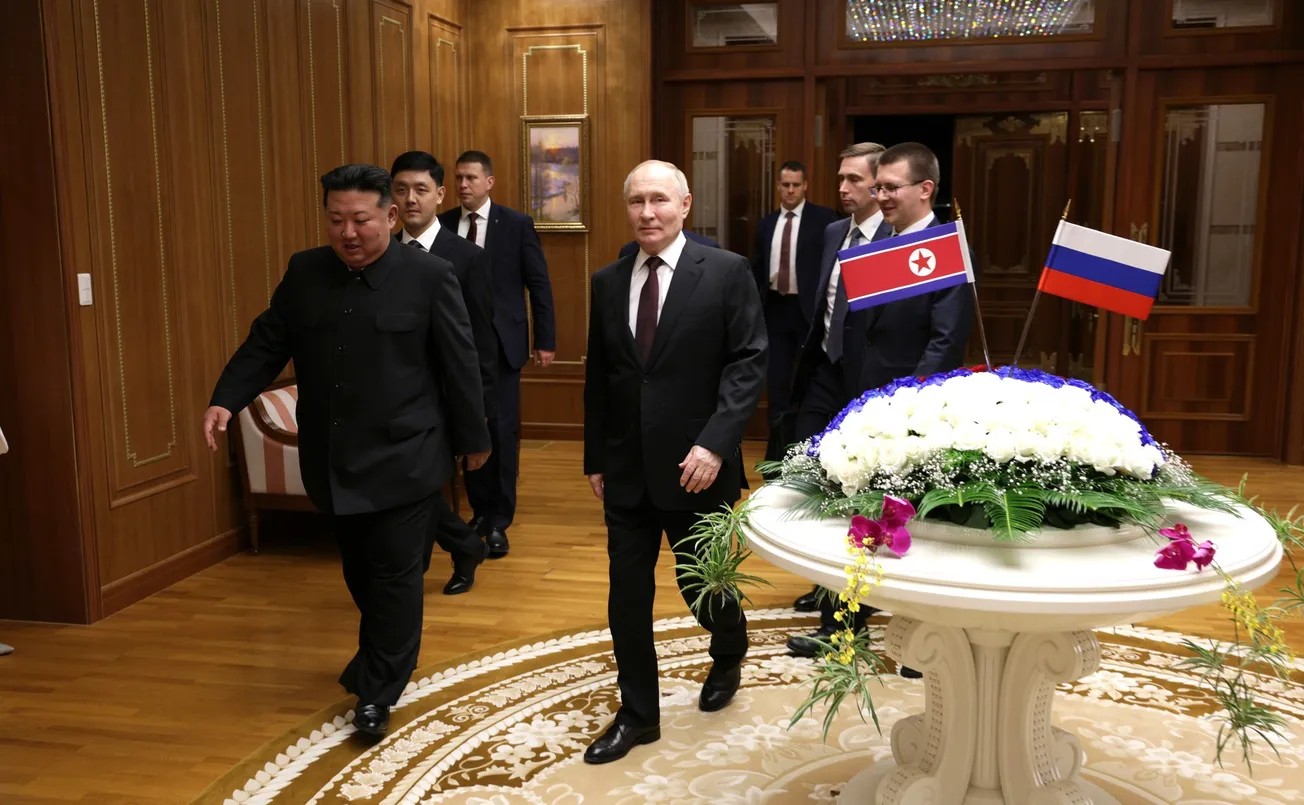One can only wonder if the principals at the U.S.’s Newsweek magazine, after today’s performance, will shortly find themselves on one of Kiev’s target lists, guilty of spreading Russian propaganda. Even though they provided more than a few qualifications and U.S. State Departments rebuttals, their sin was that they actually presented in the direct words of Anatoly Antonov, Russia’s ambassador to the U.S., the peace proposal put forward by Russian President Vladimir Putin. They also covered Antonov’s central point, the need to build “a truly equal and indivisible security in Eurasia, based on mutual respect for one and all” and “a new architecture reflecting transition to multipolarity,” without the “aggressive political and economic dominance of individual nations, as well as fragmentation into separate blocs. This is the only way to prevent the outbreak of major international conflicts.”
So, while it is still “verboten” for Washington to speak with the official representative to the U.S. from Russia, and while Newsweek failed to explain to its audience key points—e.g., that “indivisible security” means that security concerns for one side entail security concerns for the other side—in this diplomacy-deprived world, the dark void in the Western world experienced a certain sort of glimmer of light today.
Meanwhile, Putin took a high-level team to North Korea today while China simultaneously sent an important, though lower-level team, on a rare visit to South Korea. Putin heads next to Vietnam. These actions suggest that Putin and China’s head of state Xi Jinping are moving pre-emptively and in coordination to reduce tensions and stabilize the region. Of course, some in the West are frustrated as they watch Putin and Xi employ a secret weapon, offering actual physical goods and infrastructure in their dealings with other nations, putting financial arrangements as the servant of actual economic development. This is what is meant by development being the name of peace.
In a related development, two days ago Prime Minister Anwar Ibrahim announced Malaysia’s decision to join the BRICS. In the process, he amplified on this secret weapon. He explained that the rise of the BRICS, and in particular of China, has created “a glimmer of hope that there are checks and balances in the world.” While the West may still want to “control the discourse” in the world, “we can no longer accept it, because they are no longer a colonial power, and independent countries should be free to express themselves.” This is what happens when advanced sector countries decide that they can have a long-term, mutually beneficial relationship with temporarily lesser-developed countries—when they decide that colonialism was never the only course.
There was a time when Americans kidded about the Soviet Union claiming that they invented first something that Americans knew, instead, that they had invented first. Kidding aside, in this case, the secret weapon of China and Russia was actually invented in the U.S.—the anti-colonial policy of Washington, Hamilton, Lincoln, FDR and John Kennedy. That America is being revived in the Senate and House candidacies of Diane Sare and Jose Vega. Rather than curse the darkness of the mainline-media candidates, spread the light of actual Americans.
If one legacy-media outlet such as Newsweek can risk being targeted as an “information warrior,” as a threat to be “neutralized,” perhaps the gang pushing permanent enslavement to financial trickery and permanent warfare doesn’t have everything locked down into place.







